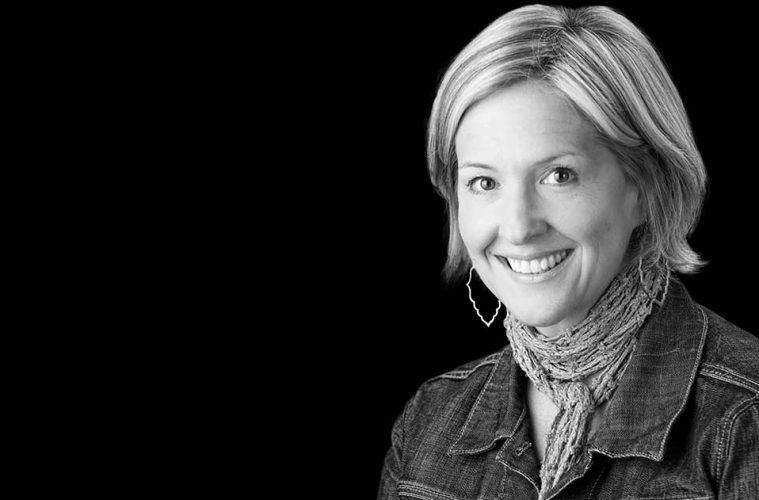
Brene Brown
Brene Brown is a research professor at the University of Houston where she holds the Huffington Foundation – Brené Brown Endowed Chair at the Graduate College of Social Work. She has spent the past sixteen years studying courage, vulnerability, shame, and empathy and is the author of three #1 New York Times bestsellers: The Gifts of Imperfection, Daring Greatly, and Rising Strong. Her TED talk — “The Power of Vulnerability” — is one of the top five most-viewed TED talks in the world, with more than thirty million views.
Why do we currently have a crisis of disconnection in our society?
Brené Brown: We’ve sorted ourselves into factions based on our politics and ideology. We’ve turned away from one another and toward blame and rage. We’re lonely and untethered. And scared. Any answer to the question “How did we get here?” is certain to be complex. But If I had to identify one core variable that magnifies our compulsion to sort ourselves into factions while at the same time cutting ourselves off from real connection with other people, my answer would be fear. Fear of vulnerability. Fear of getting hurt. Fear of the pain of disconnection. Fear of criticism and failure. Fear of conflict. Fear of not measuring up. When we ignore fear and deny vulnerability, fear grows and metastasizes. We move away from a belief in common humanity and unifying change and move into blame and shame. We will do anything that gives us a sense of more certainty and we will give our power to anyone who can promise easy answers and give us an enemy to blame.
Why do you believe a sense of true belonging is the solution?
Brown: We’re in a spiritual crisis, the key to building a true belonging practice is maintaining our belief in inextricable human connection. That connection — the spirit that flows between us and every other human in the world – is not something that can be broken; however, our belief in the connection is constantly tested and repeatedly severed. When our belief that there’s something greater than us, something rooted in love and compassion, breaks, we are more likely to retreat to our bunkers, to hate from afar, to tolerate bullshit and to dehumanize others.
Addressing this crisis will require a tremendous amount of courage. For the moment most of us are either making the choice to protect ourselves from conflict, discomfort, and vulnerability by staying quiet, or picking sides and in the process adopting the behavior of the people with whom we passionately disagree. Either way, the choices we are making to protect our beliefs are leaving us disconnected, afraid and lonely. The data that emerged from the research on true belonging can start to connect some of the dots around why we’re sorted but lonely and perhaps contribute new insight into how we can reclaim authenticity and connection.
How do you define “true belonging” and how is this different from “fitting in?”
Brown: The quest for true belonging begins with this definition that I crafted from the data:
True belonging is the spiritual practice of believing in and belonging to yourself so deeply that you can share your most authentic self with the world and find sacredness in both being a part of something and standing alone in the wilderness. True belonging does not require you to change who you are; it requires you to be who you are.
True belonging is not passive. It’s not the belonging that comes with just joining a group. It’s not fitting in or pretending or selling out because it’s safer. It’s a practice that requires us to be vulnerable, get uncomfortable, and learn how to be present with people without sacrificing who we are. If we are going to change what is happening in a meaningful way we’re going to need to intentionally be with people who are different from us. We’re going to have to sign up and join, and take a seat at the table. We’re going to have to learn how to listen, have hard conversations, look for joy, share pain, and be more curious than defensive, all while seeking moments of togetherness.
Its counterintuitive, but our belief in the inextricable human connection is one of our most renewable sources of courage in the wilderness. I can stand up for what I believe is right when I know that regardless of the pushback and criticism, I’m connected to myself and others in a way that can’t be severed. When we don’t believe in an unbreakable connection, the isolation of the wilderness is too daunting so we stay in our factions and echo chambers.
Do you believe that technology has made us feel more isolated, lonely and without a sense of belonging? Why or why not?
Brown: As I started digging into this question with research participants there was very little ambiguity. It became clear that face-to-face connection is imperative in our true belonging practice. Not only did face-to-face contact emerge as essential from the participant data in my research, but studies across the world confirm those findings. Social media are helpful in cultivating connection only to the extent that they’re used to create real community where there is structure, purpose and meaning, and some face-to-face contact. Social media are great for developing community, but for true belonging, real connection and real empathy require meeting real people in a real space in real time.
How can leaders create more intimacy and connection within their teams?
Brown: If leaders really want people to show up, speak out, take chances, and innovate, we have to create cultures where people feel safe — where their belonging is not threatened by speaking out and they are supported when they make the decision to brave the wilderness, stand alone, and speak truth to bullshit while maintaining civility.
CLICK HERE FOR THE ORIGINAL ARTICLE IN FORBES
Brene Brown Quotes:
“’Crazy-busy’ is a great armor, it’s a great way for numbing. What a lot of us do is that we stay so busy, and so out in front of our life, that the truth of how we’re feeling and what we really need can’t catch up with us.”
“Daring to set boundaries is about having the courage to love ourselves, even when we risk disappointing others.”
“I spent a lot of years trying to outrun or outsmart vulnerability by making things certain and definite, black and white, good and bad. My inability to lean into the discomfort of vulnerability limited the fullness of those important experiences that are wrought with uncertainty: Love, belonging, trust, joy, and creativity to name a few.”
“There is no innovation and creativity without failure. Period.”
“I don’t have to chase extraordinary moments to find happiness – it’s right in front of me if I’m paying attention and practicing gratitude.”
“Vulnerability is the birthplace of connection and the path to the feeling of worthiness. If it doesn’t feel vulnerable, the sharing is probably not constructive.”
“I’m not a parenting expert. In fact, I’m not sure that I even believe in the idea of ‘parenting experts.’ I’m an engaged, imperfect parent and a passionate researcher. I’m an experienced mapmaker and a stumbling traveler. Like many of you, parenting is by far my boldest and most daring adventure.”
“I carry a small sheet of paper in my wallet that has written on it the names of people whose opinions of me matter. To be on that list, you have to love me for my strengths and struggles.”


